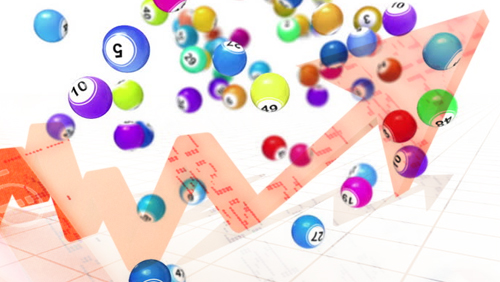Winning the elusive lottery jackpot in India now comes with a hefty price tag.
 Last week, private lottery distributor Playwin announced on Twitter that it has “revised prices” for its lottery game tickets, effective July 1. The lottery brand of Indian conglomerate Essel Group pinned the ticket price hike “on account of GST.”
Last week, private lottery distributor Playwin announced on Twitter that it has “revised prices” for its lottery game tickets, effective July 1. The lottery brand of Indian conglomerate Essel Group pinned the ticket price hike “on account of GST.”
If you recall, the Goods and Services Tax (GST) Council ordered in June a dual tax rate for lottery tickets in the country. Under the dual tax rate, state-run lotteries, which do not have private distributors or marketing agents, will be charged a 12 percent GST rate, while lotteries operated by private distributors will fall under the highest tax slab of 28 percent.
Playwin, which falls under the latter category, decided to up its tickets’ prices by as much as 30 percent, reported GLaws.in’s Jay Sayta, noting that the ticket for last week’s Saturday Super Lotto went up from INR10 (US$0.15) to INR13 (US$0.20). Saturday Super Lotto is promoted by the Sikkim government and has a total prize pool of INR3.25 crore (US$502,668.08).
Lottery tickets for other jackpot draws also went up from INR20 (US$0.31) to INR26 (US$0.40), and from INR60 (US$0.93) to INR78 (US$1.21), according to the news outlet.
The GST on the country’s US$7.78-billion lottery business was one of the hotly debated topics in the GST Council, which led to the dual rate of charging, according to Union Finance Minister Arun Jaitley. The government of Kerala, which operates its own lotteries, sought for the highest GST rate to prevent private lottery distribution companies from entering the state, while other state governments lobbied for a lower GST rate.
By imposing a higher tax rate on privately-run lotteries, the council may be looking to make the business for private operators—many of whom have been accused of committing fraud and evading taxes—unsustainable. Among the states that have allowed private distributors to sell and market their lottery schemes include Maharashtra, Goa, Sikkim, Mizoram, Nagaland, Punjab and West Bengal.
Private lotteries join gambling and race club betting in the 28 percent tax bracket, along with other “luxury” services such as cinemas and five-star hotels. Online skill games, which do not fall under gambling, are grouped under the “all other services not specified elsewhere” category and will be subjected to an 18% GST. This rate is lower than gambling activities, but still slightly higher than the 15 percent service tax currently paid by online rummy, poker and fantasy sports operators in the country.